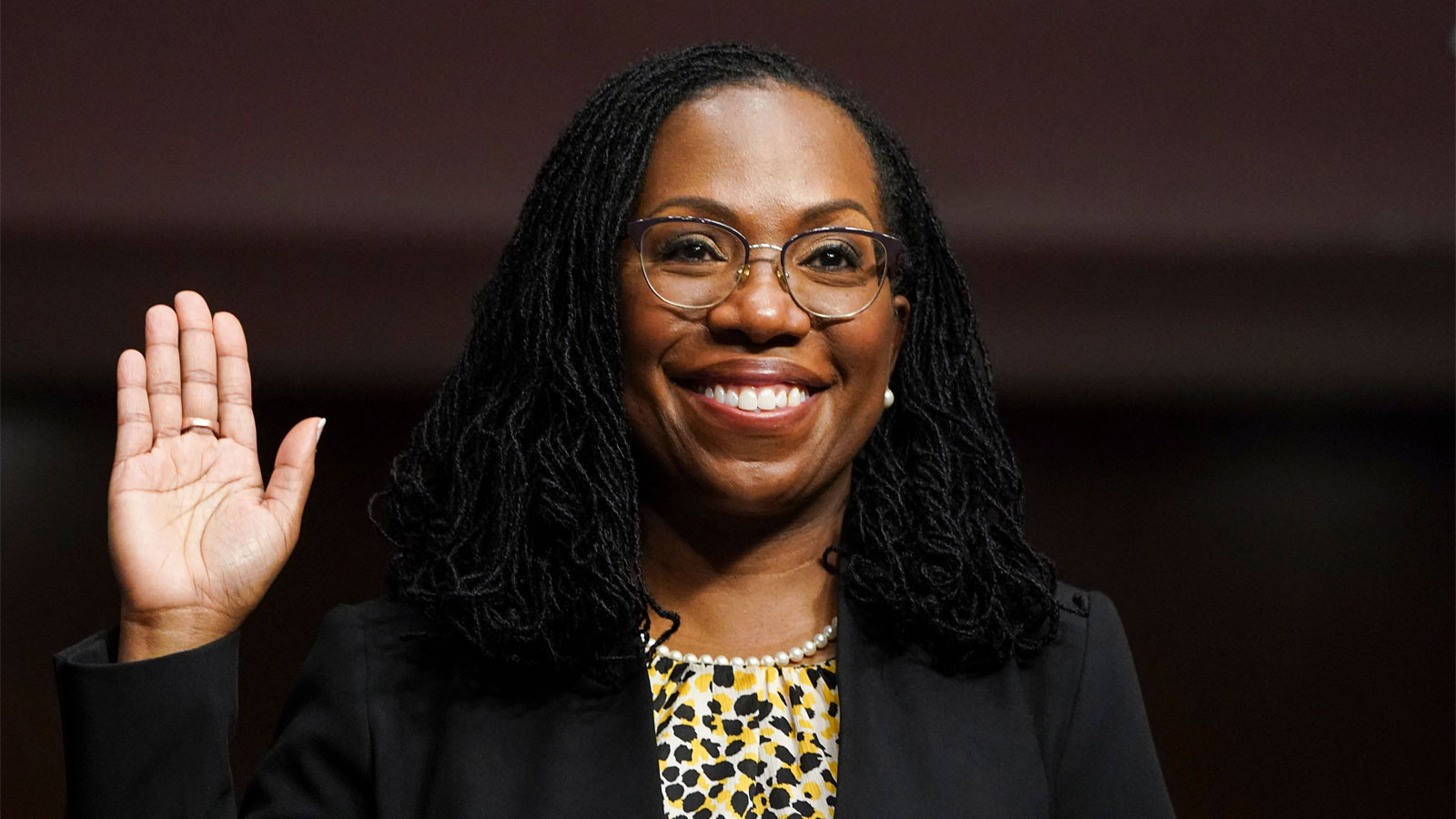On Friday, President Joe Biden nominated Ketanji Brown Jackson to the Supreme Court. Jackson, a 51-year-old federal appeals court judge, would be the first Black woman and first former public defender to sit on the highest court in the nation.
Jackson’s appointment, which must be confirmed by the U.S. Senate, would allow Biden to deliver on a campaign promise to diversify the court. Senators have set a tentative goal of confirmation by April 8, according to the Associated Press.
Jackson would replace retiring liberal Justice Stephen Breyer, who she once clerked for and appears to largely align with ideologically. Thus, her confirmation would maintain the court’s split of six conservative justices and just three liberals, likely relegating her to a dissenting role for the immediate future.
With the court expected to decide on several important environmental cases in the coming year, including a case that asks the court to rein in the federal government’s jurisdiction over the nation’s waters under the Clean Water Act, Jackson’s mixed environmental record promises to be relevant. As a federal judge, she has ruled against environmental groups as often as she’s ruled in their favor.
In 2018, Jackson ruled in favor of a $160 million lawsuit by the government Guam against the U.S. Navy for failing to clean up a federal Superfund site, and she also sided with environmental groups who sued the U.S. Environmental Protection Agency for failing to update nine air pollution standards under the Trump administration.
The next year, however, she issued a ruling allowing the Department of Homeland Security to waive more than two dozen environmental laws to build a segment of Trump’s border wall, claiming that the relevant laws did not permit judicial review of the administration’s actions. (Legal experts interviewed by Politico suggested that Jackson tends to defer to the legal authority vested in federal agencies.)
While acknowledging her complicated record, major environmental groups like the Natural Resources Defense Council, or NRDC, and the Environmental Defense Fund have come out in favor of Jackson’s confirmation. (The NRDC and Environmental Defense Fund are advertisers with Grist; advertisers have no role in Grist’s editorial decisions.)
“Often the Supreme Court has the last word on how, and sometimes whether, our laws designed to protect the environment and public health are enforced,” NRDC president Manish Bapna said in a statement on Friday. “Those cases underscore the importance of confirming justices and judges, like Jackson, who respect precedent and recognize the government’s role in addressing consequential societal issues, like protecting the environment and public health.”
Last year, when Jackson was confirmed to join the U.S. Court of Appeals for the D.C. Circuit, the Sierra Club celebrated the decision. Courtney Hight, the group’s democracy program director, called Jackson’s appointment “historic” at the time, describing her as a “jurist who has devoted her career to pursuing equal justice under the law.”
However, given the evenly divided Senate and increasingly partisan nature of confirmation proceedings, only time will tell what Jackson’s road to the bench will ultimately look like. The timeline could be complicated by Russia’s recent invasion of Ukraine and a stroke suffered by Senator Ben Ray Lujan, a Democrat whose vote would be essential if no Republican senators vote in Jackson’s favor.



